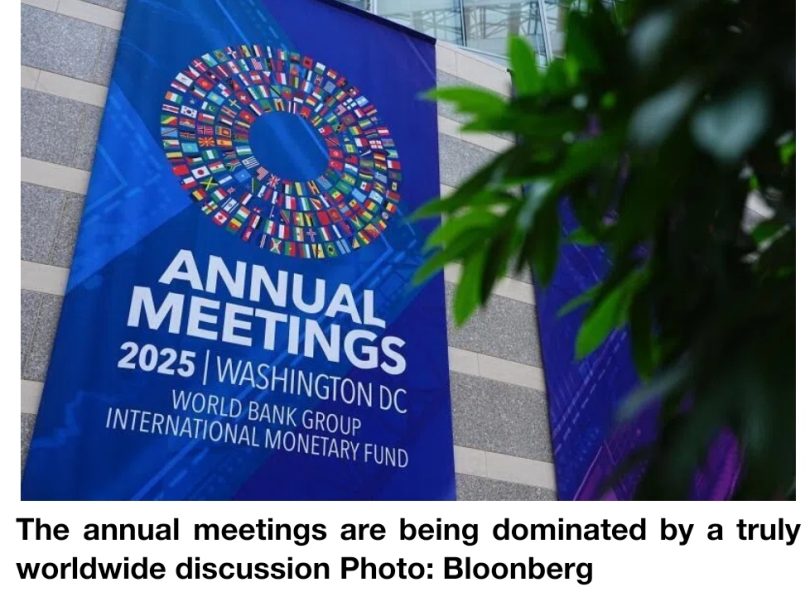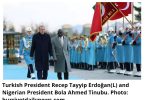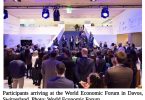The 2025 Annual Meetings of the International Monetary Fund (IMF) and the World Bank Group opened against a backdrop of significant global economic uncertainty. For the first three days, from October 13th to 15th, the institutions’ headquarters have served as a hub for intense dialogue among finance ministers, central bank governors, private-sector leaders, and civil society representatives.
The 2025 IMF and World Bank Annual Meetings are being held in Washington, D.C., at the headquarters of both organizations. Events take place across several venues within the IMF Headquarters buildings (HQ1 and HQ2) and the World Bank Group Main Complex (MC Building).
The agenda was packed, addressing a spectrum of interconnected challenges, from structural shifts in global finance to urgent needs in climate resilience and post-conflict reconstruction. This is a detailed look at the key events and discussions that unfolded.
Monday, October 13: A Day of Dialogue, Data, and Diversification
The first day of the meetings established a broad agenda, balancing high-level policy discussions with deep-dive analytical sessions and crucial stakeholder engagement.
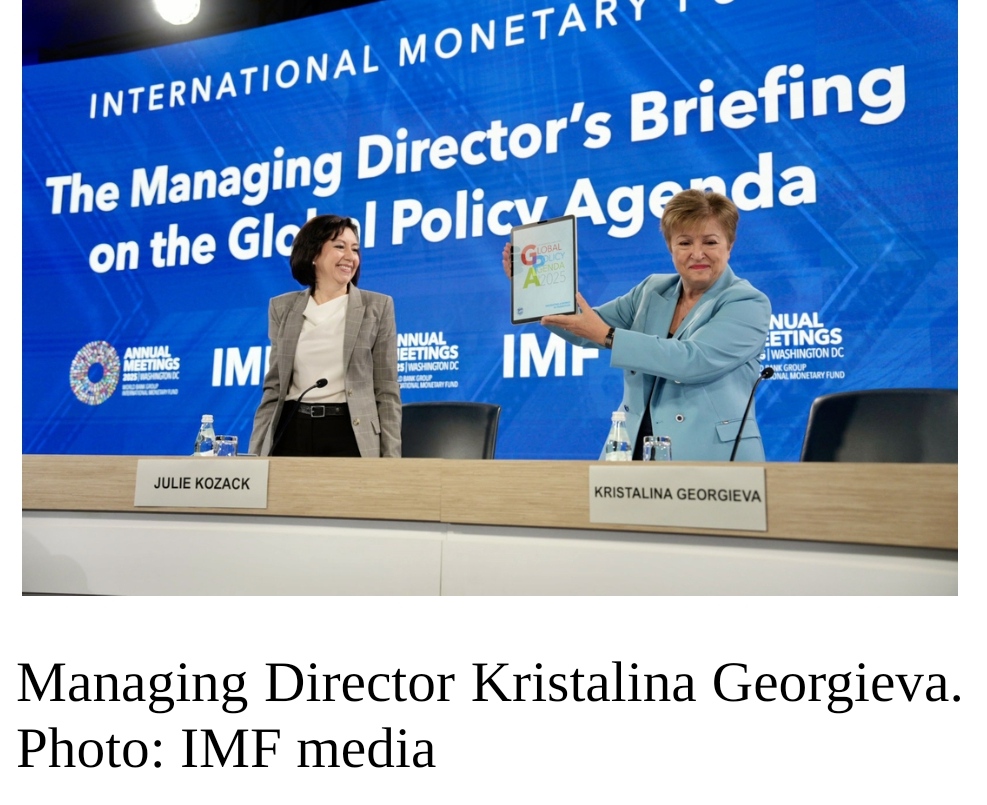
The day began with the “IMF Inspired” series, where Managing Director Kristalina Georgieva gave opening remarks for a conversation with celebrated NPR host and author Mary Louise Kelly. Moderated by the IMF’s Sabina Bhatia, the session explored themes of leadership, difficult career choices, and the value of on-the-ground reporting, setting a reflective tone for the week.
Engagement with civil society was a prominent theme. Both the IMF and the World Bank held dedicated Town Hall meetings. At the IMF, Managing Director Georgieva, moderated by Communications Director Julie Kozack, engaged in a direct dialogue with Civil Society Organization (CSO) representatives on pressing global issues.
A major focus on financial stability was evident in the “2nd IMF-IAIS Panel Discussion.” Moderated by Tobias Adrian, the IMF’s Financial Counsellor, the panel brought together a formidable group of global insurance regulators and risk officers. Speakers included Jonathan Dixon, Secretary General of the IAIS; national regulators Scott White (Virginia, USA), Shigeru Ariizumi (Japan), and Petra Hielkema (EU); and private sector experts Doug Niemann (Athene Holding) and Doriana Gamboa (Fitch Ratings). Their discussion centered on the structural shifts occurring within the life insurance industry and the potential spillover effects on global financial stability.
The afternoon was dedicated to the IMF’s “Analytical Corner,” a series of rapid-fire presentations of new IMF research:
- Global Trade Policy Spillovers to ASEAN: Economists Emmanouil Kitsios and Weining Xin presented their findings on how protectionist trade policies are creating ripple effects across the highly integrated economies of Southeast Asia.
- Reinvigorating Europe’s Dynamism: Jiae Yoo and Alexandra Fotiou from the European Department shared research on strategies to combat sluggish productivity and foster new avenues for growth on the continent.
- External Financing in Sub-Saharan Africa: Thibault Lemaire and Can Sever of the African Department provided a panoramic view of the changing and often challenging landscape of capital flows into the region, a critical issue for development.
- Supply Chain Diversification and Resilience: Concluding the series, JaeBin Ahn and Brandon Tan of the Western Hemisphere Department discussed firm-level strategies for building more robust supply chains to withstand global shocks.
The day concluded with the World Bank’s “Leaders’ Speaker Series,” which featured a conversation between Dr. Wayne Frederick, Interim President of Howard University, and Roya Rahmani, focusing on the roles of knowledge, innovation, and talent in shaping future economies.
Tuesday, October 14: Flagship Reports and the Future of Finance
Tuesday was dominated by the release of the IMF’s flagship reports, which set the empirical foundation for many of the week’s discussions.
The day began with the highly anticipated press briefing for the World Economic Outlook (WEO). IMF Chief Economist Pierre-Olivier Gourinchas, flanked by deputies Petya Koeva-Brooks and Deniz Igan, presented a sobering forecast. The WEO projected global growth to slow to 3.2% in 2025, emphasizing that the economic recovery remains slow and uneven across countries. The report highlighted the immense burden of sovereign debt and the fragmenting impact of protectionist trade measures as major headwinds [2].
Shortly after, the Global Financial Stability Report (GFSR) was released. Financial Counsellor Tobias Adrian led the press briefing, detailing the risks latent in the international financial system, including vulnerabilities in specific sectors due to the prolonged period of high interest rates.
Representing the collective voice of developing nations, the G-24 held its press conference, chaired by Argentina’s Secretary of Finance, Pablo Quirno, with ministers from Nigeria and Pakistan as vice-chairs. It also marked a leadership transition as it was announced that Wale Edun, Nigeria’s Minister of Finance and Coordinating Minister of the Economy, would take over as the new chairman of the group, succeeding Argentina’s Secretary of Finance, Pablo Quirno
On the development front, the World Bank launched its major “AgriConnect: Farms, Firms, and Finance for Jobs” initiative, a program designed to transform small-scale farming into an engine for economic growth and food security. This was complemented by a World Bank session on “Mobilizing Private Investment at Scale to Create Jobs”.
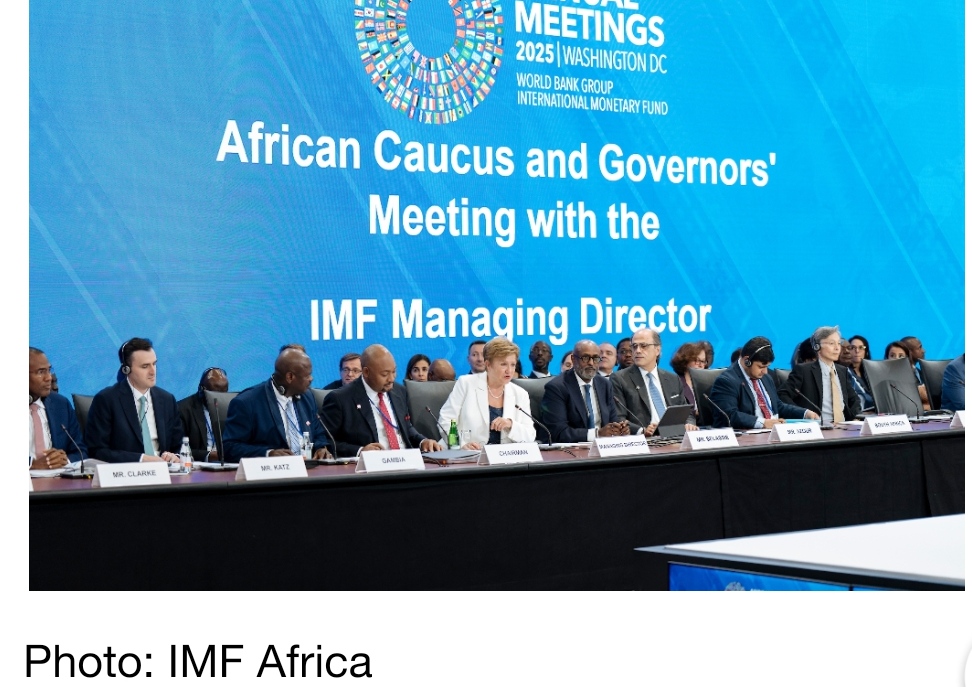
A series of high-level seminars tackled critical policy issues. A session on “Making Progress on Pension Reform” featured IMF Deputy Managing Director Bo Li and World Bank Executive Director Olga Fuentes, moderated by Fiscal Affairs Director Vitor Gaspar. The “Seminar: The Future of Finance” was a major highlight, gathering IMF Managing Director Kristalina Georgieva, World Bank President Ajay Banga, Circle CEO Jeremy Allaire, Singapore’s Monetary Authority head Chia Der Jiun, and J.P. Morgan’s Co-Head of Global Payments, Umar Farooq. Moderated by CNBC’s Sara Eisen, they debated the future of money, digital assets, and global payment systems.
The day also featured a Civil Society Policy Forum on “Rethinking IFI-led Reconstruction Finance in Conflict-Affected States” and a session on strengthening financial systems in emerging markets, with remarks from IMF First Deputy Managing Director Dan Katz and participation from the central bank governors of Kosovo and Somalia.
Another key event for regional representation was the African Caucus meeting. In a joint statement, Mr. Hervé Ndoba, the Central African Republic’s Minister of Finance and Chair of the African Caucus, and IMF Managing Director Kristalina Georgieva acknowledged the continent’s resilient growth, projected at 4.2% for 2025. However, they also highlighted significant remaining vulnerabilities, including stabilized but high debt levels around 65% of GDP, high interest payments, and the growing impact of climate shocks. The Caucus reaffirmed its commitment to domestic resource mobilization and governance reforms, while the IMF reiterated its support through mechanisms like the Poverty Reduction and Growth Trust (PRGT) and the Resilience and Sustainability Trust (RST), noting that nearly half of the 26 RST programs approved to date are in Africa.
Wednesday, October 15: Tackling Debt, Disasters, and Digital Productivity
The final day of this initial block of meetings turned to the pressing issues of public finance, climate resilience, and long-term productivity.
The morning began with the Fiscal Monitor press briefing. Director Vitor Gaspar presented the report, which painted a stark picture of the constrained fiscal space many nations are facing, with depleted buffers and mounting debt service costs. This report provided context for the day’s pervasive discussions on the sovereign debt crisis, with analyses showing IMF credit at a record high of approximately $162 billion.
The Civil Society Policy Forum ran throughout the day, hosting four critical sessions: examining how financial institutions engage with civil society, reviewing the IMF’s surveillance framework, debating the future of beneficial ownership transparency, and assessing the design of IMF support programs.
A series of “Governor Talks” offered diverse national perspectives:
- India: Sanjay Malhotra, Governor of the Reserve Bank of India, discussed monetary and financial policies for emerging markets in an uncertain world.
- Syria: Yisr Barnieh, Minister of Finance, spoke on the monumental task of rebuilding Syria towards stability and prosperity
- Denmark: Stephanie Lose, Minister for Economic Affairs, addressed Europe’s position at a crossroads, focusing on growth, resilience, and strategic autonomy.
Two major seminars drew significant attention. “Building Resilience in a Natural Disaster-Prone World” featured the finance ministers of Grenada and Bangladesh, who shared firsthand experiences and strategies for coping with climate shocks. Later, a powerhouse panel gathered for “Boosting Productivity Growth in the Digital Age,” featuring Managing Director Georgieva, Saudi Finance Minister Mohammed Al-Jadaan, philanthropist Tony O. Elumelu, MIT professor Simon Johnson, and Alphabet/Google President Ruth Porat.
The intellectual peak of the day was the Per Jacobsson Foundation Lecture. Tharman Shanmugaratnam, President of the Republic of Singapore, delivered a keynote on “Renewing Economic Order and Shared Purpose.” The subsequent discussion, moderated by Raghuram Rajan, included esteemed economists Lael Brainard and Moritz Schularick [1].
The day was rounded out with panels on emerging from conflict, featuring the presidents of the Islamic Development Bank and the EBRD, and a talk on using partnerships for revenue mobilisation, with Cameroon’s Minister of Finance, Louis-Paul Motazé.


